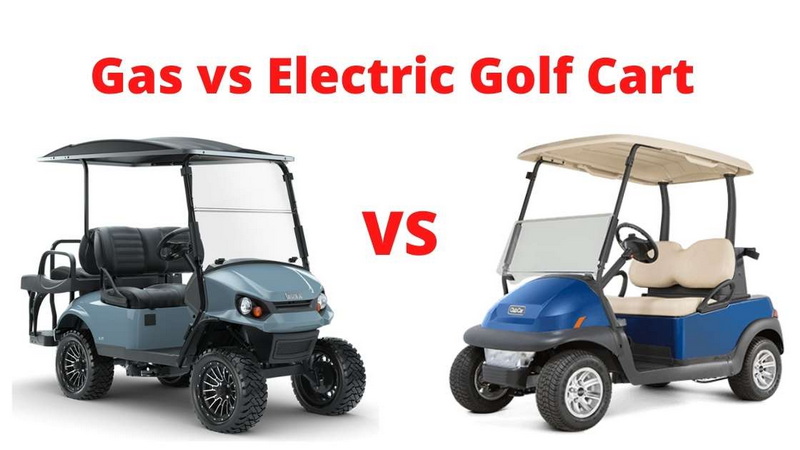Content Menu
● Introduction
● Performance Comparison
● Cost Analysis
● Environmental Impact
● Maintenance Requirements
● User Experience
● Resale Value
● Conclusion
● Frequently Asked Questions
>> 1. What are the main differences between gas and electric golf carts?
>> 2. Which type of golf cart is more cost-effective in the long run?
>> 3. How do gas and electric golf carts perform on hilly terrain?
>> 4. What maintenance do gas and electric golf carts require?
>> 5. Are electric golf carts better for the environment?
Introduction
When it comes to choosing a golf cart, one of the most significant decisions is whether to opt for a gas or electric model. Each type has its unique advantages and disadvantages, making it essential for potential buyers to understand the differences. This article will explore various aspects of gas and electric golf carts, including performance, costs, environmental impact, maintenance, user experience, and resale value.

Performance Comparison
Performance is a critical factor when selecting a golf cart. Gas golf carts typically offer higher speeds and more power than their electric counterparts. They can reach speeds of up to 25 mph, making them suitable for longer distances and hilly terrains. In contrast, electric golf carts usually have a top speed of around 20 mph. However, electric carts excel in torque and acceleration, providing a smooth and quiet ride.
Electric golf carts are also more energy-efficient, allowing for longer usage on a single charge. This efficiency can be particularly beneficial for golfers who spend extended periods on the course. Additionally, electric carts are often equipped with regenerative braking systems, which can help extend battery life.
Cost Analysis
The cost of ownership is another crucial consideration. Initially, gas golf carts may have a lower purchase price compared to electric models. However, over time, the operating costs of electric carts tend to be lower. Electric carts require less maintenance, as they have fewer moving parts and do not need oil changes.
In terms of fuel costs, electric carts are significantly cheaper to operate. The cost of charging an electric cart is generally much lower than the cost of gasoline, especially with fluctuating fuel prices. When considering long-term expenses, electric golf carts often prove to be the more economical choice.
Environmental Impact
Environmental considerations are increasingly influencing consumer choices. Gas golf carts emit harmful pollutants, contributing to air quality issues. In contrast, electric golf carts produce zero emissions during operation, making them a more eco-friendly option.
Moreover, the energy efficiency of electric carts means they consume less energy overall. Many manufacturers are now offering solar-powered charging options, further reducing the environmental footprint of electric golf carts. For eco-conscious consumers, the choice is clear: electric golf carts are the greener alternative.

Maintenance Requirements
Maintenance is a vital aspect of golf cart ownership. Gas golf carts require regular maintenance, including oil changes, air filter replacements, and engine checks. These tasks can add up in terms of time and cost.
On the other hand, electric golf carts require minimal maintenance. The primary concern is battery care, which involves ensuring the batteries are charged correctly and replaced when necessary. Lithium-ion batteries, commonly used in electric carts, have a longer lifespan and require less frequent replacement than traditional lead-acid batteries.
User Experience
User experience can significantly impact the enjoyment of using a golf cart. Gas golf carts tend to be noisier due to their internal combustion engines, which can detract from the peaceful atmosphere of a golf course. Electric carts, however, operate quietly, providing a more serene experience.
Comfort is another consideration. Electric golf carts often have smoother acceleration and braking, making them easier to drive. Many users report a preference for the quiet and smooth ride of electric carts, especially during leisurely rounds of golf.
Resale Value
Resale value is an important factor for many buyers. Generally, gas golf carts tend to have a higher resale value than electric carts. This is partly due to the potential costs associated with replacing batteries in electric models. However, as electric technology improves and becomes more mainstream, the resale value gap may narrow.
Market trends indicate that electric golf carts are becoming increasingly popular, which could positively impact their resale value in the future. Buyers should consider the long-term implications of their choice, including how it may affect resale opportunities.
Conclusion
In conclusion, both gas and electric golf carts have their unique advantages and disadvantages. Gas carts offer higher speeds and lower initial costs, while electric carts provide a quieter, more eco-friendly option with lower long-term operating costs. Ultimately, the choice between gas and electric will depend on individual preferences, budget, and intended use.

Frequently Asked Questions
1. What are the main differences between gas and electric golf carts?
Gas golf carts typically offer higher speeds and more power, while electric carts are quieter and more energy-efficient.
2. Which type of golf cart is more cost-effective in the long run?
Electric golf carts generally have lower operating costs due to less maintenance and cheaper fuel costs.
3. How do gas and electric golf carts perform on hilly terrain?
Gas golf carts usually perform better on hilly terrain due to their higher power and torque.
4. What maintenance do gas and electric golf carts require?
Gas carts require regular engine maintenance, while electric carts mainly need battery care.
5. Are electric golf carts better for the environment?
Yes, electric golf carts produce zero emissions during operation, making them a more eco-friendly choice.










































